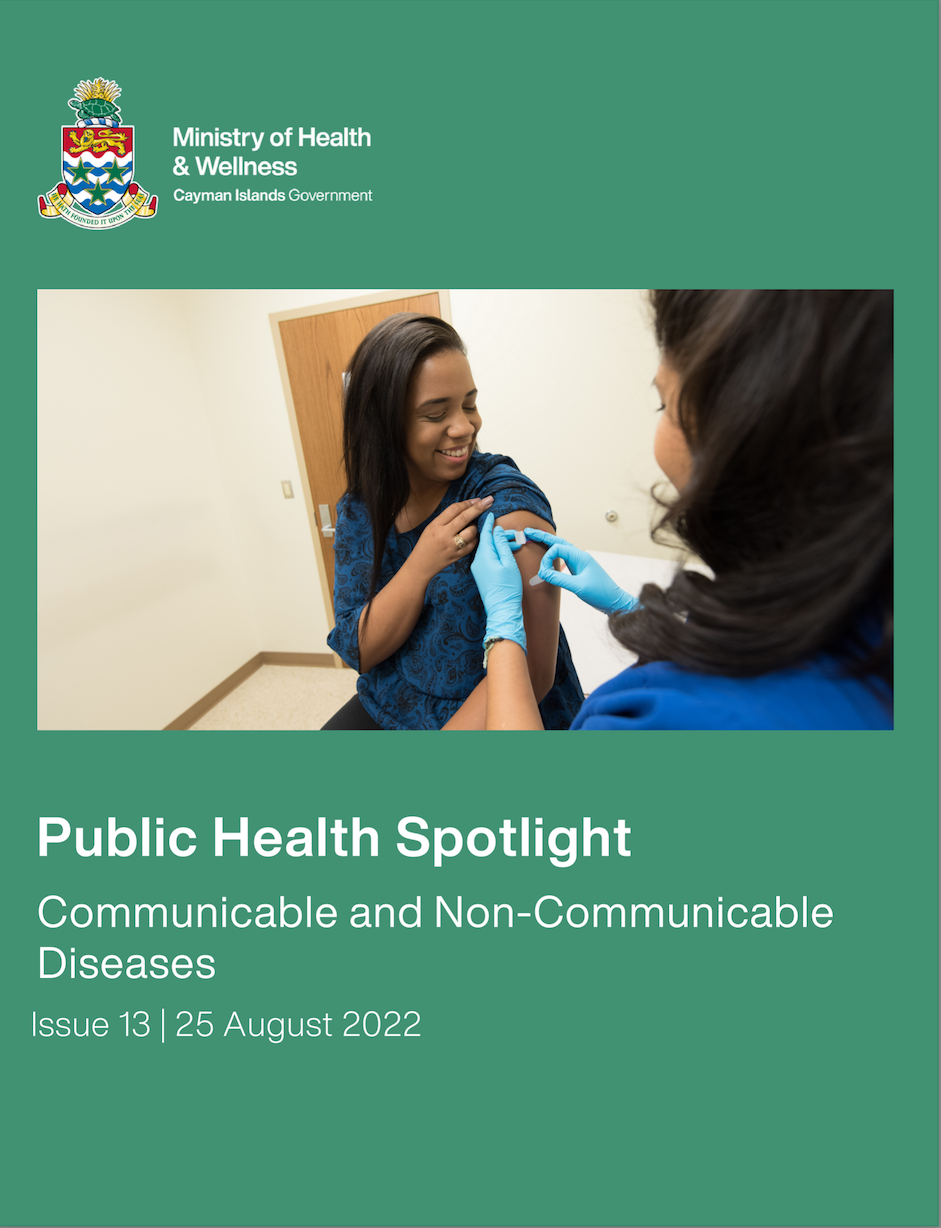Cayman: Public Health Spotlight – Issue 13 – Epi. Week 33

Grand Cayman, 25 August 2022 – The Public Health department published its weekly Public Health Spotlight on Communicable and Non-Communicable Diseases Thursday 25 August 2022.
Monkeypox
Europe remains the WHO Region reporting the largest number of laboratory-confirmed cases (2933/3413; 86%) Cases were also reported from the African Region (73/3413, 2%), the Americas (381/3413, 11%), Eastern Mediterranean Region (15/3413, <1%) and Western Pacific Region (11/3413, <1%). One death was reported in Nigeria in the second quarter of 2022.
The case count is expected to change as more information becomes available daily and data is verified under the International Health Regulations (2005) (IHR 2005) .
Cayman Islands
There continues to be no laboratory- confirmed cases of monkeypox virus detected in the Cayman Islands thus far.
Road Traffic Accidents
Road traffic accidents have emerged as an important public health issue. For most of the world’s population, the burden of road-traffic injury in terms of societal and economic costs is rising substantially. According to WHO[1], every year the lives of approximately 1.3 million people are ended due to a road traffic crash. Between 20 and 50 million people suffer non-fatal injuries, some of which incur a disability as a result of their injury. The shift from non-vehicular transport (e.g. walking and cycling), towards private motor vehicles, has marked a move towards means of transport that pose higher costs to society. Despite this, effective preventative strategies exist and should be applied through multisectoral approaches in which the health sector can play a more active role along with other involved sectors. Through investment in effective preventative strategies that address all components of the transport system, it is possible to reduce the number of injuries and fatalities, as well as other transport-related health effects.
In the Cayman Islands, according to the Royal Cayman Islands Police Service (RCIPS) Annual Crime and Traffic Statistical Report for 2021, officers attended 2,633 motor vehicle accidents, an increase of 466 accidents, compared to 2020. On average, there are said to be 51 motor vehicle accidents a week in the Cayman Islands. The main factors that contribute to road fatalities in 2021 were identified to be speeding, dangerous driving, alcohol and drug consumption. In response to the concerns surrounding road safety, the RCIPS initiated Operation QUAKER with the aim of tackling driving offences with heightened and targeted enforcement across the island. As a result, there were increases in arrests for DUI and tickets for mobile phone usage, as well as high levels of vehicles with illegal tint. In further efforts to address Cayman’s alarming road-safety record, an amendment to the Traffic Act was gazetted on 16 August 2022 that will reduce the legal blood alcohol content for drivers from 100 milligrammes of alcohol in 100 millilitres of blood (0.1%), to 70 milligrammes of alcohol in 100 millilitres of blood (0.07%). The proposed reduction will mean that Cayman will have a more restrictive limit than the limits in place in the UK, US and Canada.
[1] “Road Traffic Injuries.” World Health Organization, https://www.who.int/news-room/fact-sheets/detail/road-traffic-injuries.
COVID-19 – Epidemiological Week 33
14 – 20 August 2022 (Data as of 22-08-2022)
International Situation
A nine per cent decrease of detected cases was reported over the last week worldwide, with over 5.3 million new cases reported. The number of new deaths (over 14 000) also decreased by 15%, compared to the previous week.
Cayman Islands Local Trends
The number of newly detected cases in Cayman decreased by 44% (148 versus 265 in the previous week), although this was against a decrease in testing rate (-13%).
Hospital Admissions
There was a slight decrease in hospital admissions (7 versus 8) compared to the previous week.
Vaccination
Of the 189 doses of vaccine administered during Epi. Week 33, 79 were fourth dose (boosters).
Key Message
The number of hospital admissions remains low and no increase in deaths is registered, paving the way to repeal of current COVID-19 regulations.





